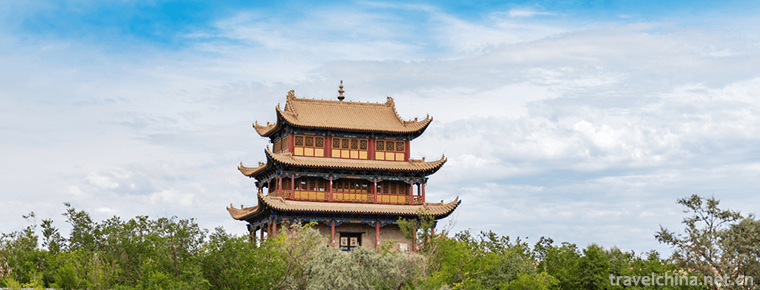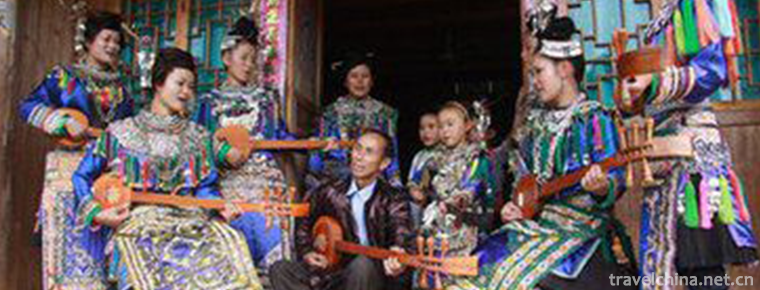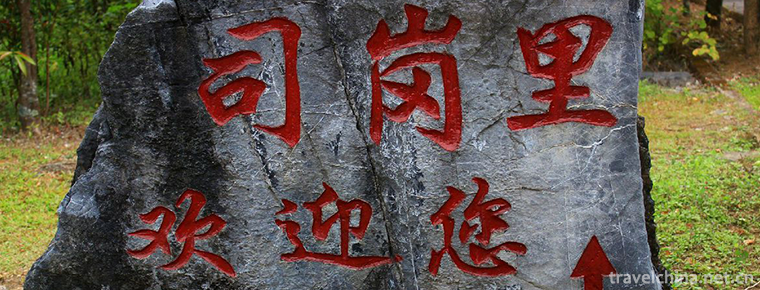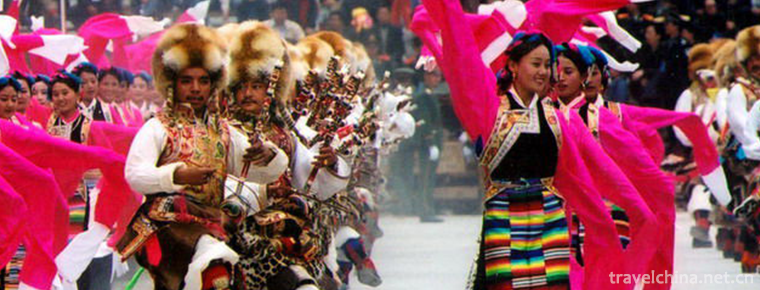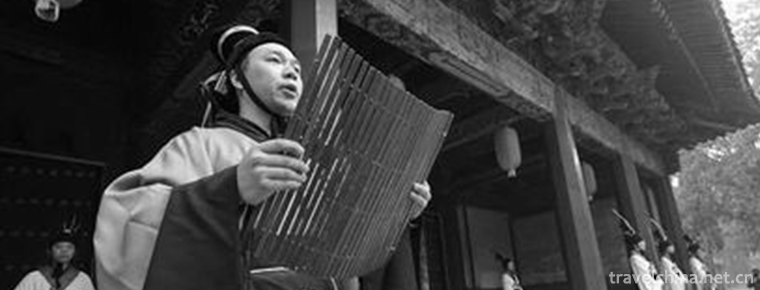Brewing Techniques of Sufu
Brewing Techniques of Sufu
Sufu brewing technology, the traditional technology of Haidian District, Beijing, is one of the national intangible cultural heritage.
Wang Zhihe's fermentation technology of Sufu was named for his inventor Wang Zhihe during the reign of Kangxi in the Qing Dynasty. Sufu brewing is a traditional food production technology in China. It is a kind of soybean food made by fermentation and pickling of tofu, which is generally used for side dishes or cooking. Wang Zhihe founded Wang Zhihe Nansauce garden in the seventeenth year of Kangxi (1678). After hundreds of years of development, its production scale has been expanding.
On June 7, 2008, the fermentation technology of Sufu was approved by the State Council of the People's Republic of China and included in the second batch of national intangible cultural heritage list, the heritage number is_-157.
historical origin
As early as the Han Dynasty, tofu was invented in China. In order to facilitate storage, people add distiller's grains to marinate, thus forming sufu.
In the Qing Dynasty, the fermentation technology of Sufu was improved and improved. Wang Zhihe, who was famous for his time, appeared, and his traditional production technology has been inherited to this day.
In the eighth year of Emperor Kangxi in the Qing Dynasty (1669), Wang Zhi of Anhui Province, who lived in the Anhui Guild Hall in Beijing, rushed to Beijing for an exam. During the preparation period, he relied on tofu sales to make a living. Wang Zhihe inadvertently invented stinky tofu, a unique variety of tofu, by using his own fermentation techniques to preserve the leftover tofu. After that, the business of stinky tofu became more and more prosperous. Wang Zhihe abandoned his studies and went into business. In 1678, in the seventeenth year of Kangxi in Qing Dynasty, Wangzhi and Nansai Garden were founded in Shousi Street, Yanchang, Qianmen, where stinky tofu was produced in front and back shops.
"Wang Zhihe" stinky tofu "known as the capital city" later, spread to the palace, was given the name "Qingfang" by Empress Dowager Cixi, and since then its value has doubled.
During the Guangxu period of the Qing Dynasty, sauce gardens such as Wang Zhenghe, Wang Zhihe and Zhizhong Zhonghe were successively opened outside Xuanwumen and Yanshou Temple Street.
After the public-private joint venture in 1958, Wang Zhihe and Nan Zaoyuan moved to Haidian District, Beijing, and their production scale expanded year by year.
Process characteristics
Wang Zhihe combined his ancestral production technology with modern science and technology and fashion elements to produce more than 100 varieties of rose curd, red-hot curd, cabbage curd, including shrimp seed curd, seabuckthorn fruit honey curd, dry red curd, Maotai curd and other high-end products.
Sufu brewing technology inherits the production technology of Mucor fermented sufu. It mainly produces red Sufu and green Sufu (stinky tofu). The products have the characteristics of "fine, soft, fresh and fragrant".
Inheritance and protection
Inheritance value
Wang Zhihe Sufu belongs to fermented soybean products. It is not only rich in nutrition, but also rich in medicinal value. It has many functions such as lowering cholesterol content, lowering blood pressure and so on. It is a rare ideal health food.
In a certain historical period, Sufu meets the needs of the poor for plant protein, which has important historical value and nutritional value. At the end of 2006, Wang Zhihe was awarded the title of "China Old Brand" by the Ministry of Commerce. Its brewing technique is unique, which contains strong national characteristics and profound cultural connotations.
protective measures
- External display
In 2002, Wang Zhihe Sufu was built into a cultural exhibition room. Please describe the history of Wang Zhihe and the situation before and after the merger of the "Four Harmonies" and record their personal experiences by audio and video recording, which will be preserved as precious historical materials in the cultural exhibition room.
Support for inheritance
Wang Zhihe has three senior technicians of sufu. In order to ensure the better inheritance of "fermented Sufu brewing skills", Wang Zhihe has always paid great attention to the protection and support of the successors, such as arranging them to learn the production technology in key positions of fermented Sufu production, arranging them to take up positions in other key positions after mastering the skills of one post, encouraging them to concentrate on research, and constantly cultivating successors.
Every year, Wang Zhihe and Sufu provide the inheritors who have mastered the technology of Sufu brewing with opportunities to study and study abroad. To organize the successors to visit Paris, France and Japan, in addition to learning advanced foreign production technology, but also to conduct in-depth communication and exchanges with enterprises in different fields.
Training reserve
Wang Zhihe always pays attention to the cultivation of reserve forces, and constantly accumulates strength for the sustainable development of Wang Zhihe and sufu. In the daily production process, high-level technicians are usually appointed to help and guide the reserve talents and consciously select the successors of training skills to ensure the inheritance of traditional skills. At the same time, enterprises also actively build a stage for reserve talents to display their abilities, from which they find better qualified talents to focus on training, and encourage them to enter for the examination of Sufu industry technicians and senior technicians, and constantly reserve reserve for Sufu brewing skills.
In 2009, Wang Zhihe Group specially formulated the "annual workshop practice plan". Starting from grinding, fermentation, pickling, direct loading and post-cleaning processes, it regularly arranged young employees and managers of enterprises to take root in production workshops, participate in front-line production, comprehensively and systematically understand various production processes, and systematically learn and master the production techniques of sufu. On the basis of continuous familiarity with the production process, the use of managerial personnel to improve the shortcomings found in the production and processing process, not only makes young employees more familiar with the traditional Sufu brewing technology, but also greatly improves work efficiency.
Innovation in R&D
Wang Zhihe has been cooperating with universities and research institutes such as China Agricultural University to deeply study the microbial fermentation mechanism and explore the nutritional value components of sufu. The nutritional value of Sufu and the health functions of the physiological active substances (soybean polypeptide, superoxide dismutase, soybean isobrass, soybean oligosaccharides, etc.) in Sufu are analyzed, studied and applied.
social influence
Honorary commendation
"Wang Zhihe" trademark was recognized as "well-known trademark" by the relevant state departments, and Wang Zhihe Nansai Garden was identified as "old Chinese brand" by the Ministry of Commerce.
Best selling inside and outside
Wang Zhihe curd is sold in 31 provinces, municipalities and autonomous regions throughout the country. It is exported to the United States, Canada, Australia, the European Union and other countries and regions. Wang Zhihe curd products are widely welcomed and praised by consumers at home and abroad.
Cultural anecdotes
In 1669, Wang Zhihe of Anhui Province came to Beijing to catch up with the exam. After falling out of the list, he had no way to go home and started tofu business temporarily. One day, there was a lot of tofu left. In the summer, Wang Zhihe remembered the method of making soy bean curd in his hometown, and put the tofu into the jar with salt and pepper. A few months later, when Wang Zhihe remembered this, he immediately opened the lid and smelled bad. He tried it, but it tasted delicate and fragrant. He gave it to his neighbours. It was amazing that "Wang Zhi and stinky tofu" was born.
In 1859, Sun Jianao, the first priest, wrote four Tibetan poems for the shops on Yanshou Temple Street: "To make the gentleman delicious, spread thousands of miles, and keep my heart in good shape; to make sauce with dragon's peony, to open a garden with chicken's sole bell and hibiscus."
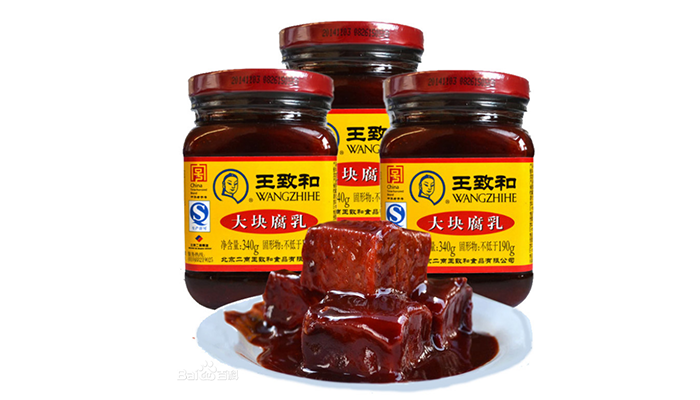
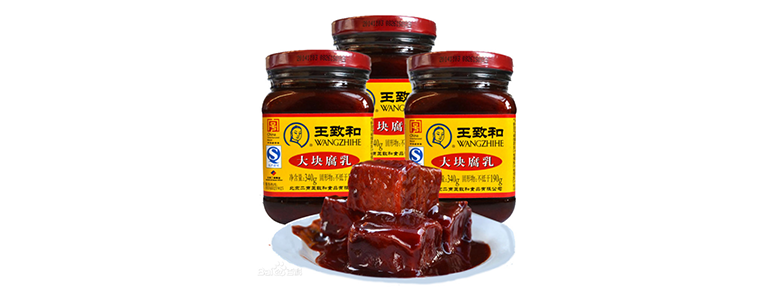
Brewing Techniques of Sufu
-
Hao River
Haohe River surrounds the old city of Nantong, like a gourd, like a Pearl chain, known as the "emerald necklace" of Nantong City. It is a national 5A tourist attraction.
Views: 214 Time 2018-12-06 -
Jiayuguan cultural relics scenic spot
Jiayuguan: World Cultural Heritage, National AAAAA Tourist Scenic Spot, National Key Cultural Relics Protection Unit, National Patriotic Education Demonstration Base.
Views: 195 Time 2018-12-12 -
Dong Pipa Song
Dong Pipa song is distributed in the southern dialect area of Dong nationality, which can be divided into lyric and narrative Pipa song. Its singing content almost covers Dong history
Views: 149 Time 2019-04-28 -
folk song of northern shaanxi
Northern Shaanxi folk song is a traditional folk song in northern Shaanxi, which can be divided into three categories: labor chant, Xintianyou and minor. Labor chants include tamping song, blockbuster
Views: 389 Time 2019-06-13 -
Sigangli
Lincang City is located in the southwest of Yunnan Province, which is adjacent to the west, southwest of Yunnan and Myanmar. It has jurisdiction over one district, four counties and three autonomous c
Views: 152 Time 2019-06-16 -
String Dance
String dance is popular in Sichuan, Yunnan and other Tibetan areas and in Changdu, Tibet. String dance is an indispensable self-musical dance in Tibetan people's life. During festivals, weddings and g
Views: 963 Time 2019-07-03 -
Recitative
Recitation is a local traditional music form in Changzhou City, Jiangsu Province, which has a high reputation at home and abroad. The art of reciting belongs to "minority culture", which is
Views: 105 Time 2019-07-13 -
Neijiang Normal University
Neijiang Normal University is a full-time general undergraduate college organized by Sichuan Provincial People's Government. Neijiang City, where the school is located, is located in the middle of Che
Views: 199 Time 2019-08-31 -
Beijing Sport Univerrsity
Beijing Sports University was founded in 1953, formerly known as the Central College of Physical Education, renamed Beijing Sports College in 1956 and Beijing Sports University in 1993. It is a nation
Views: 200 Time 2019-09-06 -
China University of Labor Relations
China Institute of Industrial Relations (China University of Labor Relations) All China Federation of trade unions Ordinary Institutions of higher learning It is jointly built by the all China Federat
Views: 179 Time 2019-12-20 -
Meishan tertiary industry
In 2019, the total retail sales of consumer goods will reach 54.869 billion yuan, an increase of 10.5%. Among them, enterprises (units) above the designated size achieved 15.655 billion yuan of retail sales of consumer goods, an increase of 10.2%. In terms
Views: 354 Time 2020-12-18


